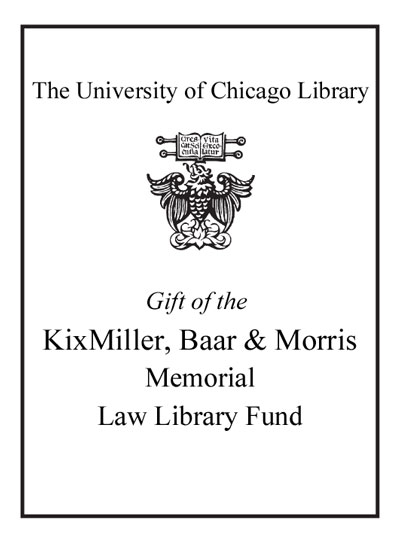| Summary: | "Randall P. Bezanson takes up an essential and timely inquiry into the Constitutional limits of the Supreme Court's power to create, interpret, and enforce one of the essential rights of American citizens. Analyzing contemporary Supreme Court decisions from the past fifteen years, Bezanson argues that judicial interpretations have fundamentally and drastically expanded the meaning and understanding of "speech." Bezanson focuses on judgments such as the much-discussed Citizens United case, which granted the full measure of constitutional protection to speech by corporations, and the Doe vs. Reed case in Washington state, which recognized the signing of petitions and voting in elections as acts of free speech. In each case study, he questions whether the meaning of speech has been expanded too far and critically assesses the Supreme Court's methodology in reaching and explaining its expansive conclusions"--
"In this project Randall Bezanson examines judicial interpretations of free speech by means of a broad range of Supreme Court cases, arguing that over the past 15 years the Court has engaged in a truly revolutionary expansion of the reach of the free speech guarantee. The cases include the much-discussed Citizens United decision which granted the full measure of constitutional protection to speech by corporations; the Doe v. Reed case from Washington State that recognized the acts of signing petitions and voting in elections as acts of free speech; the Summum decision holding that the decision to select a monument for a public park and to reject another based on the government's disagreement with the monument's message is an act of government speech immunized from challenge by the First Amendment; and the Hurley and Dale cases that recognized free speech claims for messages and meanings that arose "out of thin air": speech without an author (a parade); and an author without a message (the Boy Scouts). As in earlier books on freedom of the press and of religion, Bezanson aims to arm the reader with the capacity to reach her or his own decision about whether the Court's conduct befitted the independent judicial branch and the consequences of its decisions for a representative democracy"--
|
|---|

